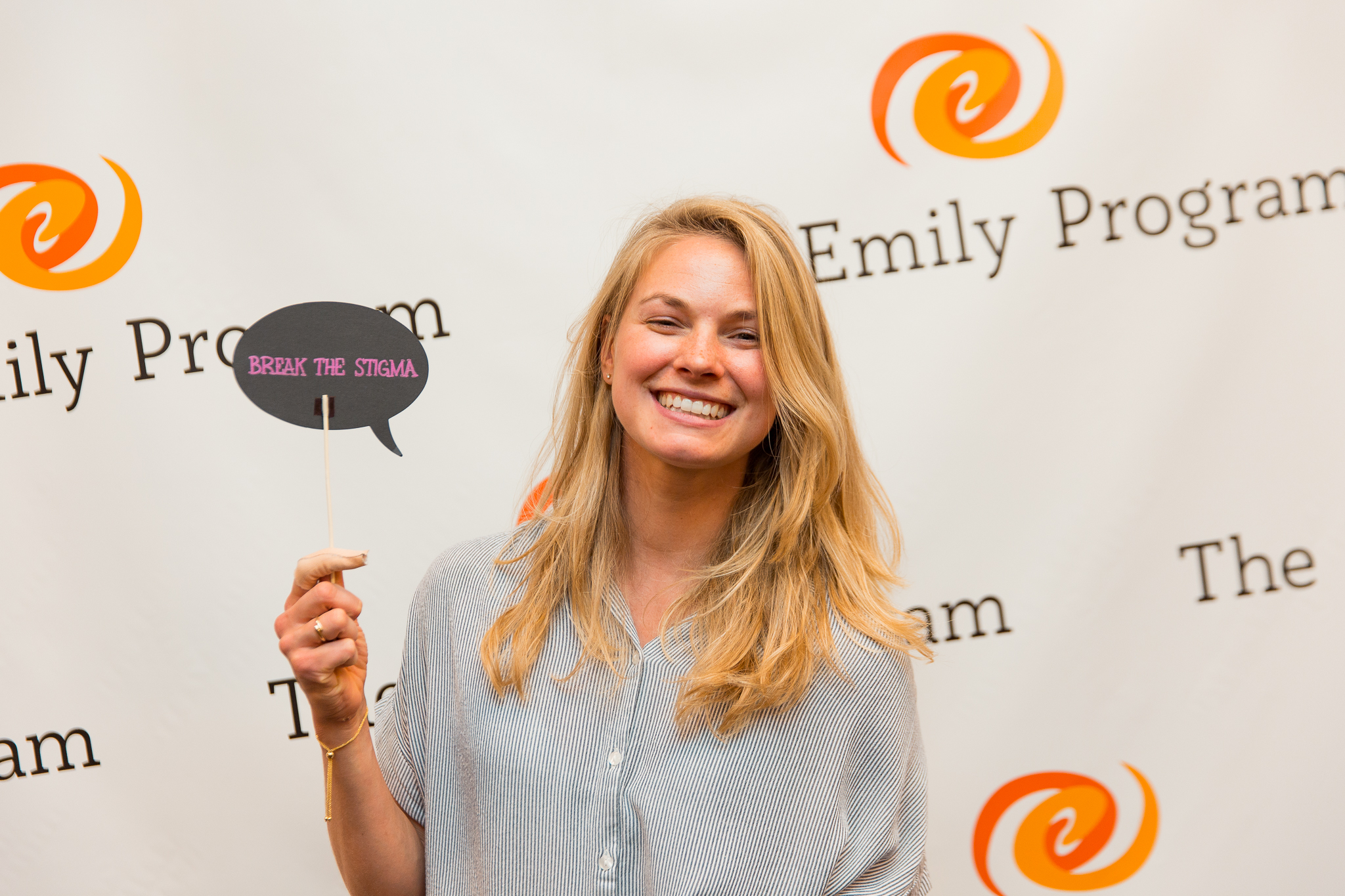Eating Disorders awareness week is really important to me, and hopefully to you as well! Statistically, you know at least one person who has or who will suffer from one at some point in their lifetime. As with many challenges in our lives, the more we can learn, understand and find compassion, the more we can help one another through the rough patches.

I’d like to start with an excerpt from my upcoming book, Brave Enough. I was 19 years old, having just checked into the Emily Program for group sessions during my treatment. I was beginning to learn more about how my eating disorder was connected to my emotions, not necessarily to food. Depending on who you are, this will either sound familiar (you’re not the only one who has felt this way, I promise) or it will be an insight into the mind of someone suffering with an eating disorder.
“I had a lot of unpacking to do. No one likes moving furniture and boxes, but this was even harder. I was unpacking my thoughts and emotions and moving them from the deepest, darkest part of my brain and out into the bright, open space of The Emily Program. This unpacking process was where I took major strides down the road of self-discovery.
For pretty much everyone at The Emily Program, it wasn’t really about food. Yes, we were in a clinic that handled eating disorders. But our treatment wasn’t focused solely on food and eating. Our group and individual therapy sessions were more about unpacking our own history. It wasn’t so much about what symptoms we were using but more about the emotions behind our actions, the reason we were using those symptoms in the first place. Often, it wasn’t even about getting skinny. Some people had an eating disorder because they’d been abused. Other patients had eating disorders because they didn’t want to look pretty. They didn’t want to look attractive because they were terrified of it. For some people, it was about handling stress from work or school or athletics, and that was exactly why I was there.
The unpacking process was exhausting for me. I was encouraged to talk about how using symptoms made me feel and what led up to it. My emotions were packed away in a series of tightly connected boxes like Russian nesting dolls. They were stored in the back of my psyche, and some emotions fit inside other emotions. Every time I would bring an emotion out from the deepest, darkest spot of my brain and into the light of The Emily Program, another emotion would reveal itself. Soon, the boxes were stacked up all around me. I worried that if they toppled over, they’d bury me alive.
“Everyone’s favorite question to ask an athlete is about what we can or can’t eat,” I said in one group session as I began to unpack an emotion.
“They always ask me, ‘Can you eat dessert? What do you have to eat? Are you on a special diet? Oh, you’re going to eat that?’ People are always asking what I’m eating and question if I should be eating it,” I told the group.
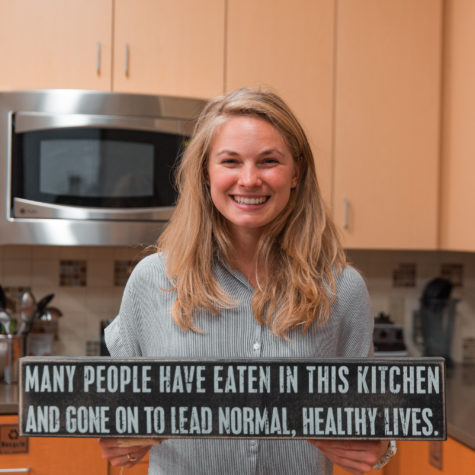
“So, now, I question whether I should or shouldn’t eat the food in front of me. I’m questioning myself at every meal, especially if I’m eating in front of teammates who are watching me. I feel so guilty about the amount I’m consuming because I’m an athlete.”
The guilt was now unpacked and out in the open space of our group session. The light allowed me to discover another emotion inside of the one I had just revealed. Heck, I didn’t even know it was there. But I now knew that this feeling haunted me.
“At first, I felt guilt about what I ate. But then I realized that I also felt ashamed and completely unworthy because here I was, trying to become a pro athlete, following my training plan perfectly . . . and I can’t even extend that same attention to detail with my diet. I feel like maybe I’ll never be enough, that I won’t be good enough to make it.”
Unpacking that memory led to a discussion about how my eating disorder was tied to my athletics and how I created very restricted eating ideas, but we also talked about how my quest to be “perfect” was creating really rigid walls for me as well. Our group therapist led a discussion about how all foods do fit into everyone’s diet, and that allowing yourself to be who you are is key to being able to be at peace with yourself. I began to think maybe perfection didn’t need to have so much control over my life.
In those first weeks at The Emily Program that was exactly how my recovery went. I still felt guilty and ashamed for needing to be there at all, and it was confusing. But I also felt relieved. I was sharing my secrets for the first time, and that made me feel brave. While a large part of my brain that was still controlled by my eating disorder screamed at me to quit, a smaller, much quieter part of my brain was jumping up and down, waving banners, and cheering for me as I slowly came around to the idea that I might not always need my eating disorder. I was unpacking all those emotions that I was so ashamed of, and the people sitting next to me were so supportive, and as they listened, they offered insight. Most important, I felt supported in my quest to open up and figure out why I used symptoms. “
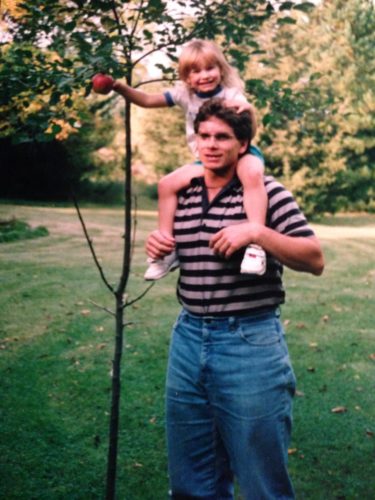
For those of you reading this who have struggled or are currently struggling with an eating disorder, know this: you are not alone, it’s not your fault, and there is so much hope for you to get better and find peace with yourself. I’m no expert by any means, but allow me to share three things I wish I’d heard early on.
1. Ask for help! The sooner you get professional help and start your road to recovery, the greater your chances of returning to a happy and healthy life as soon as possible. If you fall and break your arm, would you hide it from everyone and insist that you can fix it yourself? Would you insist that school, your job, or other obligations are more important than getting your arm healed? Or would you tell your family and then head to the nearest doctor to get medical help?
Treat your eating disorder with the gravity of the life-threatening illness that it is. Don’t struggle though it alone, reach out to medical professionals trained in eating disorders for help. Tell your family, and tell your coach or other important people in your life. If you’re nervous or scared to tell them, feel free to use me as an example to get the conversation started. Send them this blog post, and read it together.
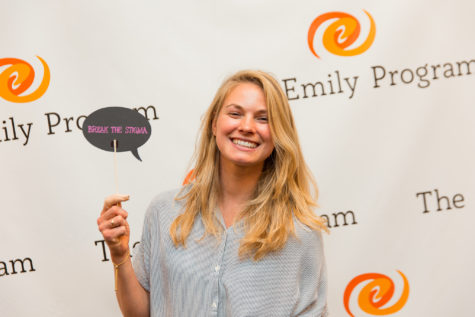
A few resources to get you started:
- The Emily Program has multiple locations, and you can learn more about eating disorders as well as call to set up an appointment through their website: https://emilyprogram.com/
- Should you live further away, the National Eating Disorders Association, NEDA, has a super helpful website to learn and find treatment near you. https://www.nationaleatingdisorders.org/
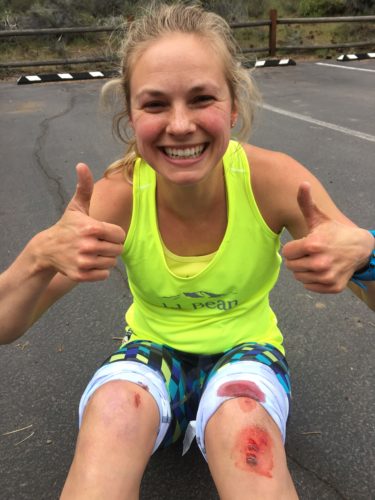
2. Build a support team around you. Ask important people in your life if they can be there for you through the ups and downs, to:
- listen to you, not judge you
- check in with you when you need some accountability
- walk you to an appointment if you’re feeling nervous
- be a shoulder to lean on
When you’re on a team, you feel supported and surrounded by positivity and hope. Ask your family, friends, coaches and teammates to be part of your team as you take steps on your road to recovery.

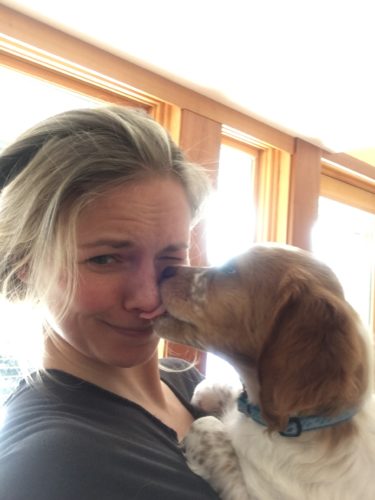
3. And finally…you’ve got this. Don’t give up, especially because it seems impossibly hard at times. When you come out the other side, you will be one of the strongest people on the planet. Recovery isn’t immediate, and just as it takes time for your eating disorder to take hold, it takes time to drive it out with healthier thoughts and new patterns of behavior to cope with whatever triggers your eating disorder. But even though it takes time and isn’t a linear path to the top doesn’t mean that every single step isn’t important! Each time you choose your health over your eating disorder, every time you stand up for yourself, is a small victory and something to be proud of. Celebrate those daily small victories, and keep cheering for yourself. And when it gets exhausting, turn to your support team; they’re always going to be there cheering for you even when you’re too tired from fighting against ED to cheer for yourself.

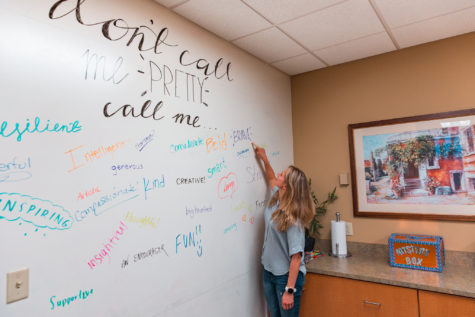
Eating disorders awareness week continues with another post coming soon, especially for the members of those all-star support teams! Coaches, parents, teammates, teachers, this next one is for you. Thank you for your love and support.

